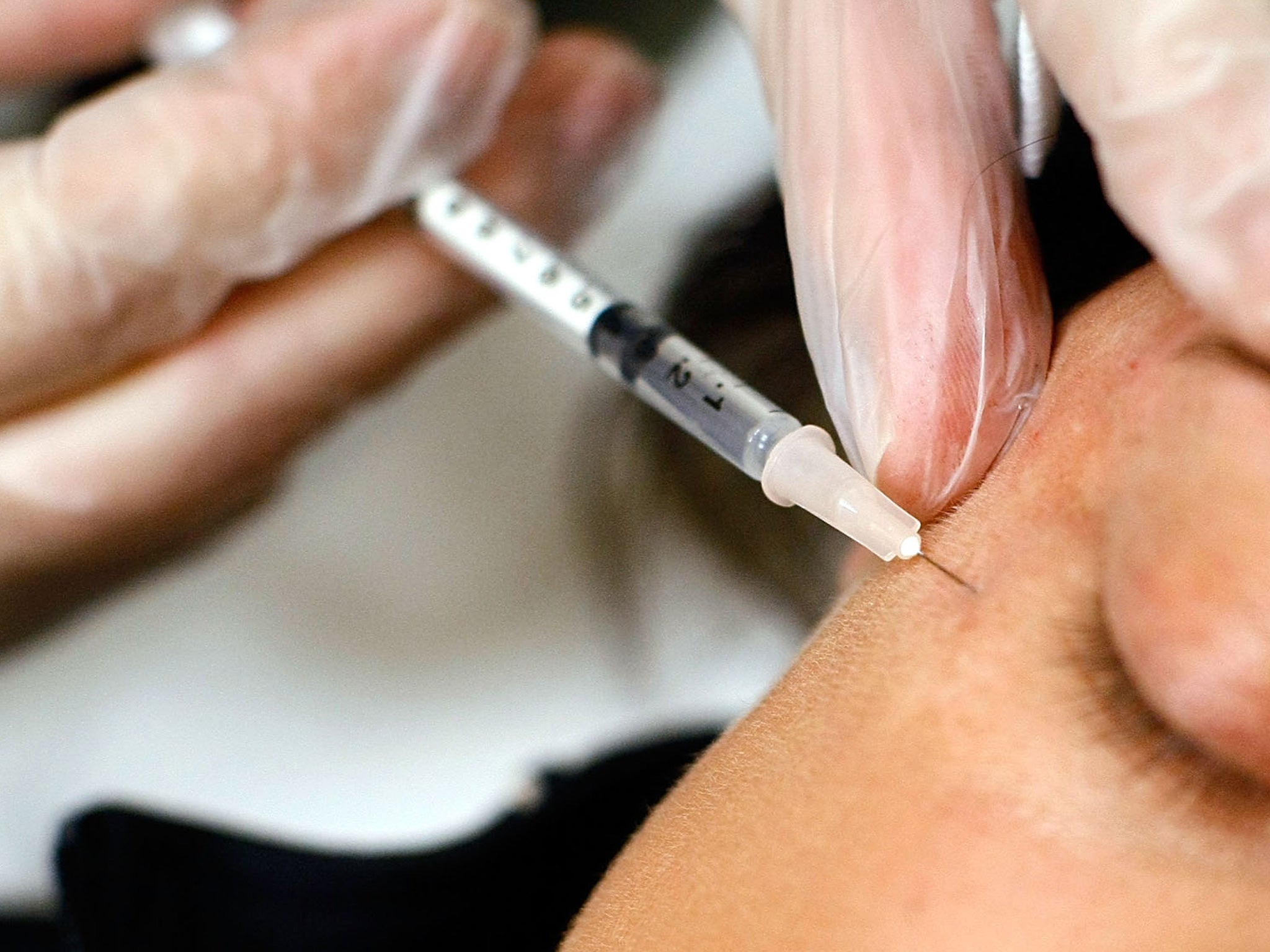Cosmetic surgery firms face ban on giving free advice

Your support helps us to tell the story
From reproductive rights to climate change to Big Tech, The Independent is on the ground when the story is developing. Whether it's investigating the financials of Elon Musk's pro-Trump PAC or producing our latest documentary, 'The A Word', which shines a light on the American women fighting for reproductive rights, we know how important it is to parse out the facts from the messaging.
At such a critical moment in US history, we need reporters on the ground. Your donation allows us to keep sending journalists to speak to both sides of the story.
The Independent is trusted by Americans across the entire political spectrum. And unlike many other quality news outlets, we choose not to lock Americans out of our reporting and analysis with paywalls. We believe quality journalism should be available to everyone, paid for by those who can afford it.
Your support makes all the difference.Cosmetic surgery companies face being banned from offering free medical consultations to prospective patients and may be required to obtain a two-stage written consent in a clampdown on the industry in the wake of the PIP breast implant scandal.
As part of a review into the cosmetic surgery industry, the Government is also considering banning companies from offering two-for-one surgical procedures and time-limited deals. Practitioners would also be expected to provide better information to patients, including photos of expected bruising and scarring, and more detail on the risks associated with surgery.
Publishing the public response to its consultation on toughening up the laws that govern cosmetic surgery, Sir Bruce Keogh, the medical director of the NHS, said it was clear that the current regulatory framework didn't do enough to support consumer rights or patient safety.
"It's not always acknowledged that people undergoing cosmetic interventions are not only consumers but also patients," he said. "They are taking decisions about medical procedures that can have a profound impact on their health. The supply and demand for procedures has outgrown the existing legislation."
The review was requested by Health Secretary Andrew Lansley last January after concerns were raised following the public outcry over faulty PIP breast implants.
Around 40,000 women in the UK received implants manufactured by the now-closed French company Poly Implant Prostheses, mostly in private UK clinics. The implants were filled with non-medical grade silicone intended for use in mattresses.
The Government is due to publish its final recommendations in March. But in an indication of what areas are likely to be included it today publishes the recommendations which had most public support and that were being actively considered for further regulation. These include banning free consultations to avoid people feeling obliged to have procedures.
The report was welcomed by the British Association of Aesthetic Plastic Surgeons (BAAPS).
Join our commenting forum
Join thought-provoking conversations, follow other Independent readers and see their replies
Comments